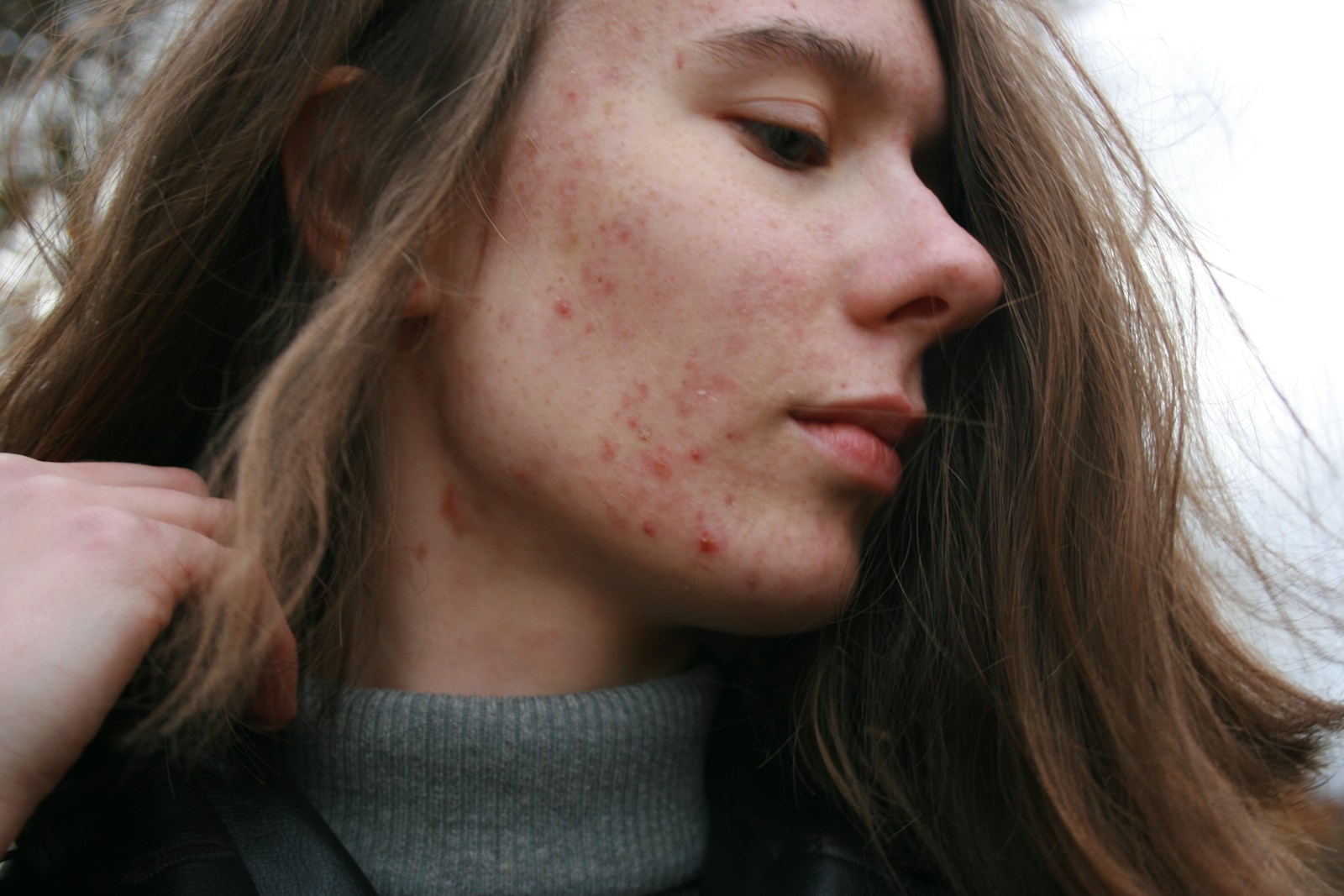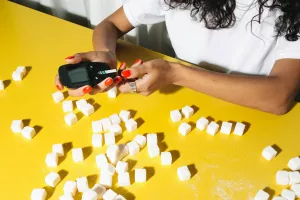Acne is a common skin condition, affecting approximately 80% of adolescents and many adults. Despite its prevalence, misconceptions about acne are widespread, leading to confusion about its causes and treatments. Scientific advancements have dispelled many myths, providing clearer guidance on managing this condition. This comprehensive guide aims to clarify these misconceptions and offer practical advice for effective acne management.
1. Acne is Not Caused by Diet
Understanding Sebum and Acne
Acne’s primary cause is the blockage of hair follicles due to excessive sebum production by sebaceous glands. This blockage leads to the formation of blackheads, whiteheads, and eventually, pimples due to bacterial infection and inflammation. While diet plays a minimal role in sebum production, maintaining a healthy diet is beneficial for overall skin well-being.
Exploring the Diet Myth
The belief that greasy foods and chocolate cause acne is widespread but unfounded. Research indicates no direct link between specific foods and acne flare-ups. While some studies suggest high-glycemic foods may influence acne, evidence remains inconclusive. A balanced diet rich in fruits, vegetables, and omega-3 fatty acids supports skin health.
Real-Life Example
Consider Sarah, a 17-year-old with persistent acne. Initially, she blamed her acne on her love for pizza. After consulting a dermatologist, she learned that hormonal changes were the primary cause. Armed with this information, Sarah focused on a gentle skincare routine rather than dietary restrictions, improving her skin health over time.
Practical Dietary Advice
- Moderation is Key: Enjoy your favorite foods but avoid overindulgence.
- Hydration: Drink plenty of water to maintain skin hydration and support detoxification.
- Nutrient-Rich Foods: Incorporate foods high in antioxidants and vitamins, like berries and leafy greens, to promote skin repair and health.
2. Acne Doesn’t Just Affect Teens
Acne Beyond Adolescence
While acne is common during adolescence due to hormonal changes, it can persist into adulthood. Women, in particular, may experience acne well into their 30s and 40s due to hormonal fluctuations associated with menstruation, pregnancy, or menopause. Stress and certain cosmetics can exacerbate adult acne.
Case Study: Adult Acne
Jessica, a 35-year-old accountant, experienced an unexpected acne outbreak. Initially puzzled, she consulted a dermatologist and discovered her new birth control pills were affecting her hormone levels, triggering acne. Adjusting her medication under medical guidance improved her condition.
Tips for Managing Adult Acne
- Consult a Dermatologist: Seek professional advice for personalized treatment options.
- Monitor Hormonal Changes: Track hormonal fluctuations and their impact on your skin.
- Stress Management: Practice stress-reducing techniques like yoga or meditation to minimize breakouts.
3. Acne is Not Due to Poor Hygiene
The Cleanliness Confusion
Acne results from excess sebum, not poor hygiene. Over-cleansing can strip the skin of natural oils, prompting sebum overproduction and worsening acne. Maintaining a balanced skincare regimen is crucial.
Practical Tips for Skincare
- Choose Gentle Cleansers: Opt for sulfate-free cleansers that maintain the skin’s natural barrier.
- Moisturize: Use non-comedogenic moisturizers to keep skin hydrated without clogging pores.
- Avoid Scrubbing: Cleanse with your fingertips to prevent irritation.
Common Mistakes and How to Avoid Them
- Over-Washing: Limit face washing to twice daily to avoid irritation.
- Using Abrasive Products: Select gentle, non-irritating skincare products.
- Skipping Moisturizer: Even oily skin needs moisture to prevent excess sebum production.
4. Acne is Not Contagious
Understanding Acne Bacteria
Propionibacterium acnes, the bacterium associated with acne, resides in hair follicles away from air and oxygen, making transmission impossible. While sharing towels or makeup tools doesn’t spread acne, maintaining hygiene prevents other skin issues.
Hygiene Best Practices
- Regular Cleaning: Wash towels and pillowcases frequently to minimize bacterial accumulation.
- Avoid Sharing Personal Items: Keep personal items like towels and makeup brushes personal to prevent cross-contamination.
- Use Clean Tools: Regularly clean makeup brushes and applicators to prevent bacteria buildup.
5. Acne Does Not Cure with the Sun
The Sun’s Deceptive Effects
While sun exposure initially dries lesions, it thickens the skin, potentially causing more acne due to ingrown hairs. Many acne medications contraindicate sun exposure, necessitating protection to prevent further skin damage.
Sun Protection Practices
- Use Broad-Spectrum Sunscreen: Choose oil-free, non-comedogenic formulas.
- Avoid Peak Sun Hours: Stay out of direct sunlight between 10 AM and 4 PM.
- Wear Protective Clothing: Hats and long sleeves shield your skin from harmful UV rays.
Personal Experience: Sunscreen Success
Emma, an avid runner, noticed her acne worsening with sun exposure. Switching to a non-comedogenic sunscreen and wearing a hat during outdoor runs significantly reduced her breakouts.
6. Acne Does Not Only Affect the Face
Understanding Body Acne
Acne can occur on the upper back, shoulders, and neck, areas with sebum-producing glands. Factors like hormones and genetics contribute to excess sebum production, leading to acne formation. Body acne can become inflammatory if P. acnes proliferates.
Managing Body Acne
- Post-Workout Routine: Shower with a gentle body wash after sweating to prevent pores from clogging.
- Wear Breathable Fabrics: Choose loose-fitting, breathable clothing to reduce skin irritation.
- Exfoliate Gently: Use gentle exfoliants to prevent clogged pores without irritating the skin.
Real-Life Scenario: Body Acne Management
Tom, a fitness enthusiast, struggled with back acne. By adopting a routine of showering immediately after workouts and using an exfoliating body wash, he saw significant improvement in his skin condition.
7. Makeup Does Not Worsen Acne
Smart Makeup Choices
Acne doesn’t prohibit makeup use, but choosing the right products is crucial. Non-comedogenic and oil-free products reduce the risk of breakouts. Thorough makeup removal before bed is essential.
Makeup Tips for Acne-Prone Skin
- Mineral-Based Products: These are often less irritating.
- Oil-Free Formulas: Look for labels specifying oil-free and non-comedogenic.
- Regular Cleaning: Clean makeup brushes regularly to prevent bacteria buildup.
Example: Makeup Routine Adjustment
Lisa, a makeup enthusiast, noticed her acne worsening with heavy foundation use. Switching to a mineral-based foundation and ensuring thorough makeup removal improved her skin’s appearance.
Additional Considerations
Hormonal Treatments
For some, hormonal treatments can regulate hormones responsible for excess sebum production. Consulting a dermatologist helps determine suitability.
Psychological Impact of Acne
Acne affects physical appearance and can impact mental health, leading to low self-esteem or embarrassment. Addressing these feelings through support or counseling is important.
Alternative Treatments
Alternative treatments like tea tree oil or zinc supplements can complement traditional approaches. While evidence on their effectiveness varies, they can be part of a comprehensive skincare plan when used cautiously and in consultation with a healthcare provider.
Empowering Acne Management
Understanding acne’s myths and facts empowers individuals to make informed decisions and seek appropriate care. Through medical treatments, lifestyle adjustments, and skincare practices, managing acne is a personal journey unique to each individual.
With these insights, you can approach acne management with confidence, armed with the knowledge to dispel myths and embrace effective solutions tailored to your needs.




